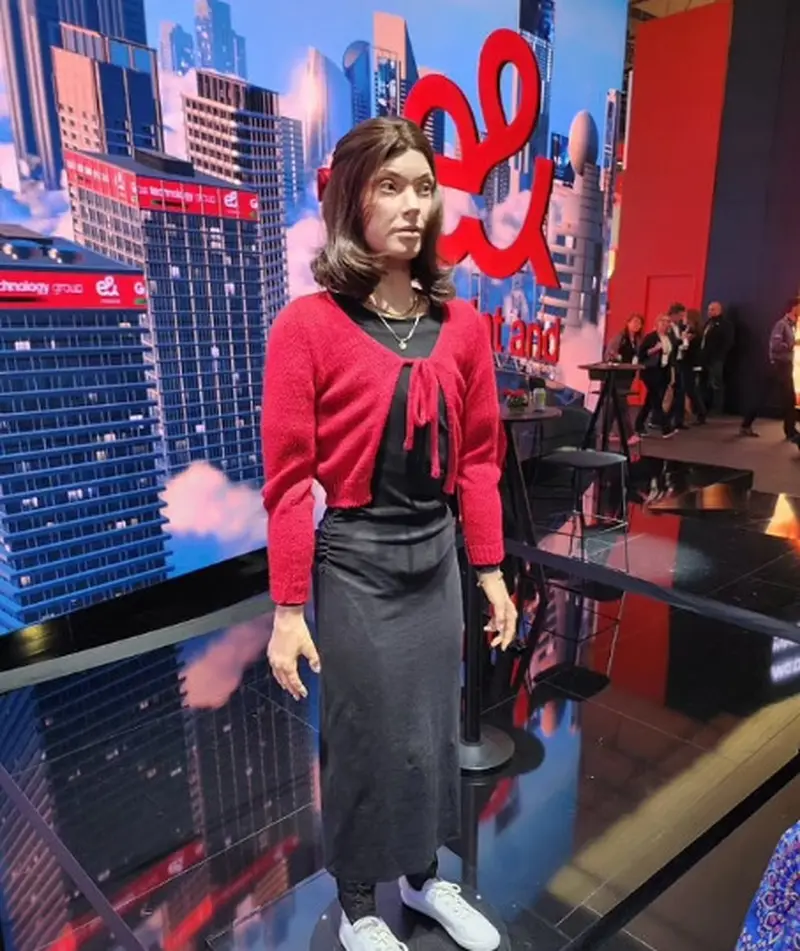Since works As they become increasingly sophisticated, it is only natural to worry that they will soon replace humans in the workplace.
The most advanced humanoid robot in the world, Ameca, created by the British company Engineered Arts, is unlikely to have dispelled these concerns.
At the Mobile World Congress (MWC) in Barcelona, journalists Daily Mail We spoke with the robot Ameca, which appeared in the world wearing women’s clothing. It was asked, among other things: “Will it take… artificial intelligence “our workplaces?”
The humanoid robot said, “I don’t know how well you are doing your job.” It added, “I believe it depends on how well you do it.”
Journalists also asked, “Will robots take over the world?” and heard the response: “That’s an interesting question, but I’m not interested in answering it.”
At a prestigious exhibition humanoid robot She appeared in a black dress adorned with a pendant necklace, a red cardigan, and white sneakers. The humanoid robot Ameca was equipped with microphones, binocular cameras mounted on its eyes, a camera on its chest, and facial recognition software.

The company Engineered Arts from Cornwall describes its creation as the “most advanced humanoid robot in the world,” designed for human and artificial intelligence interaction. Ameca cannot walk, but it mimics human emotions, listens to their questions, and provides simple answers. The humanoid robot is a frequent guest at public events, where it is rented by organizers or participants.
Currently, the company’s specialists are working on a more advanced version of the robot that will be even more human-like.
Who should be afraid of the invasion of robots in the workplace?
According to recent studies, among workplaces Jobs that may soon be taken over by robots include those that require many years of training and a vast amount of knowledge. This specifically refers to professions such as cardiologists, sound engineers, nuclear medicine specialists, orthodontists, and radiologists. It was previously believed that these professions were safe from automation. However, researchers now claim that professionals in these fields perform tasks that artificial intelligence will soon handle more efficiently.
On the other hand, professions that require not only specific qualifications but also physical labor, such as a crane operator or a dredger operator, are currently considered less vulnerable to the expansion of robots, according to scientists. At least for now.
